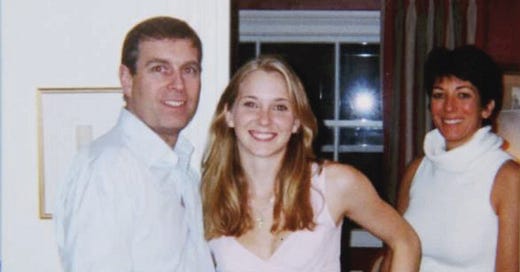Has Andrew been failed by his lawyers?
Palace source speaks of “growing disquiet” over advice given to Duke of York
Royal courtiers fear that the Duke of York is being failed by the response of his London-based lawyers to the civil claim brought against him in the US by Virginia Giuffre, today’s Telegraph reports.
A royal source told newspaper:
There is growing disquiet over the advice being given to the duke by his London legal team in the face of this potentially hi…
Keep reading with a 7-day free trial
Subscribe to A Lawyer Writes to keep reading this post and get 7 days of free access to the full post archives.



